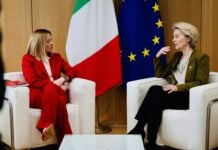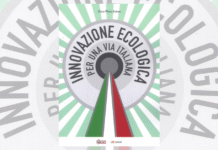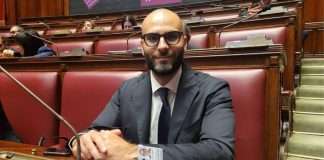Two important events are taking place these days, bringing together political and institutional representatives, simultaneously focusing on the environment, sustainable development and energy transition.
Italy did not want to miss either occasion, being present at both the Cop29 in Baku and the G20 meeting in Rio de Janeiro.
Italy’s presence at both forums showed the line pursued so far by the government, based on a concrete commitment to a fair, equitable and sustainable energy transition. The key points for achieving this objective are an action aimed at achieving technological neutrality and the use of policies that are less ideological and more pragmatic, which means above all taking into account the term ‘sustainability’ in all its facets, also and above all understanding it as an action that places man at the centre of the action to defend nature.
The President of the Council on the subject is reported to have clarified:
“This summit is taking place in the same days in which COP29 is being held in Baku, where Italy also did not want to miss it. In that context we are preparing to strengthen the joint commitment, including the financial one, needed to achieve the ambitious goals we set ourselves in Dubai with the Global Stocktake.
We are aware that those goals are still a long way off, but for this very reason I believe that the G20 must and can play a decisive role. Because we will neither succeed in tripling the renewable energy generation capacity by 2030, nor in doubling the rate of energy efficiency, if we do not succeed in sharing responsibilities as much as possible, also by overcoming the now anachronistic division between developed nations and emerging economies.
We must think in new ways. If, on the one hand, it must be remembered that those who suffer the most negative impact of climate change are those more fragile nations that have contributed the least to global pollution, on the other hand it is essential that the main greenhouse gas emitting states ensure more solid collaboration.
Italy is playing its part in the decarbonisation process, with a vision that deliberately rejects any ideological approach to the matter. That is, we believe that a balance must be found between the need to limit CO2 emissions and the adoption of radical measures that jeopardise the sustainability of our production and social systems. Nature must be defended with man in it, and unnecessary radicalism risks leading us astray. We cannot pursue decarbonisation at the price of economic desertification, because there is nothing green in a desert.
The principle to follow is that of technological neutrality, because there is no single solution that can quickly build an alternative to fossil fuels. We must be pragmatic.
In all likelihood, the world population will reach 8.5 billion by 2030 and global GDP will double in the next decade. This will push up the demand for energy, also for the needs related to the development of artificial intelligence.
We need to build a balanced energy mix, using all available technologies. Not only renewables, but also gas, hydrogen, CO2 capture and biofuels.
At the G20 Summit in New Delhi, Italy joined the Global Biofuel Alliance proposed by Prime Minister Modi. We are the most advanced nation in Europe in this field, because we are convinced that biofuels can make a fundamental contribution to the energy transition and also open up great opportunities in the automotive sector, without the production of endothermic engines, with the serious economic, social, and employment repercussions that my European colleagues are also familiar with.
We are also resolutely pursuing the path towards nuclear fusion, a technology with the potential to transform energy from a geopolitical weapon to a widely accessible resource, in fact changing history. We are committed to this at the forefront and, not surprisingly, hosted the first meeting of the IAEA-sponsored World Fusion Energy Group.
We also wanted the climate-energy nexus to be one of the priorities of the Italian G7 Presidency. We promoted concrete initiatives such as the Energy for Growth in Africa, for the development of infrastructure for the production and distribution of green energy, and the Adaptation Accelerator Hub, to support the most vulnerable nations in climate change adaptation and mitigation.
G7 and G20 can walk together for a just, equitable and sustainable energy transition. We pledge our support to the task force promoted by the Brazilian Presidency, and we are ready to work to explore new solutions to the problems of our time. Because, as economist Julian Simon says, ‘the best fuel to fuel world progress is our stock of knowledge, and the brake is our lack of imagination’.






























